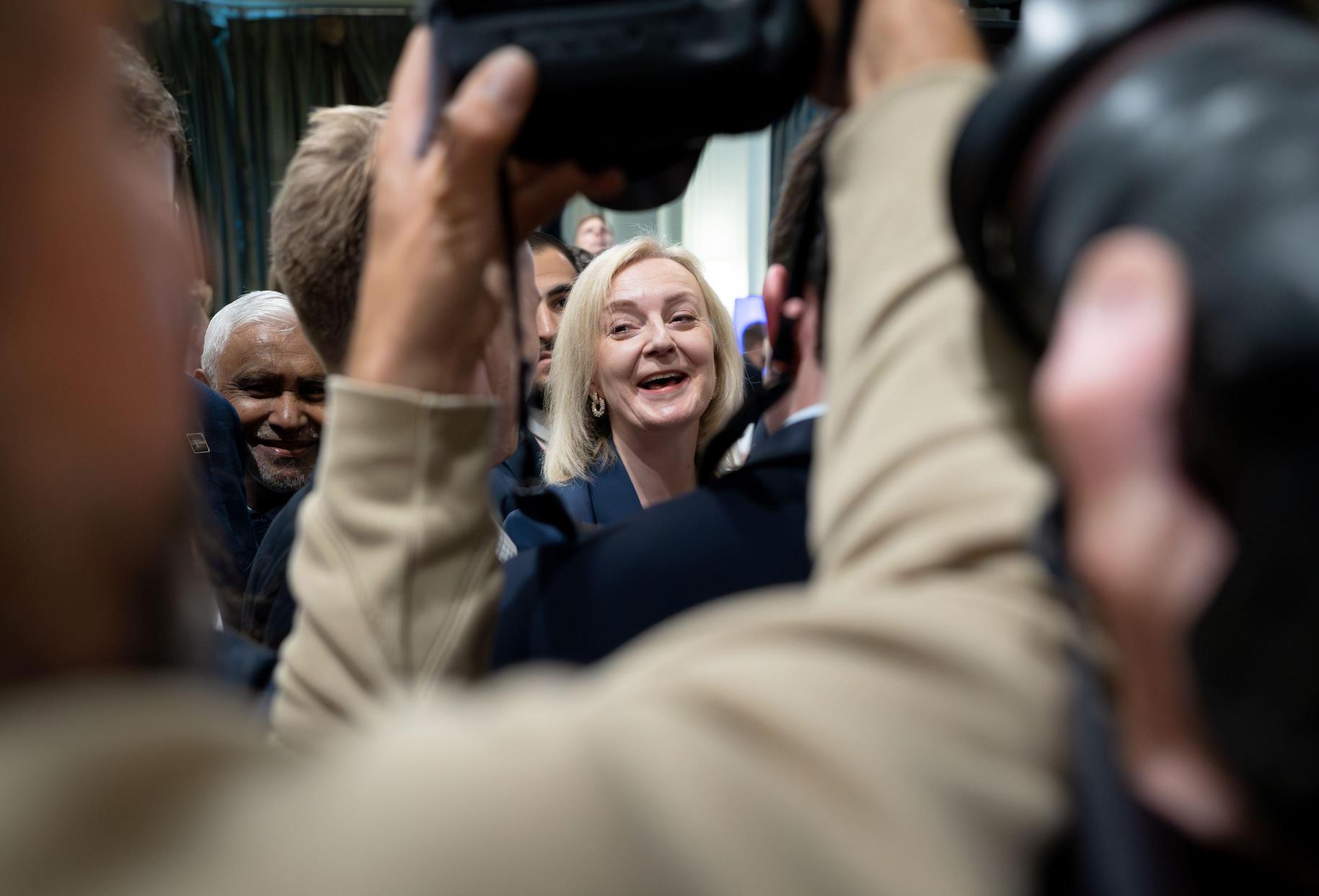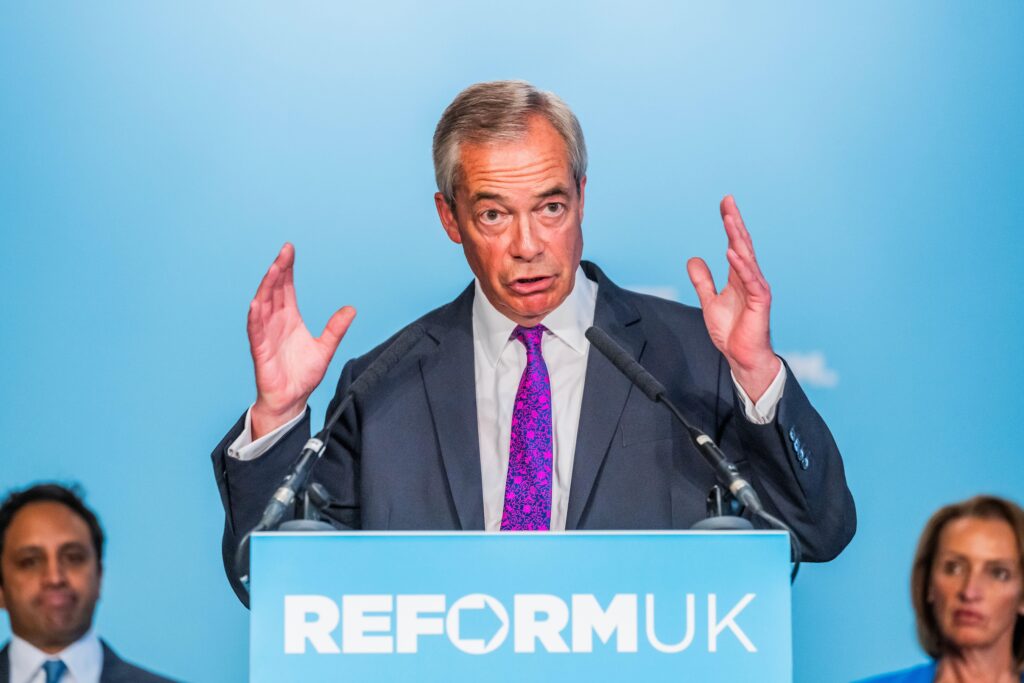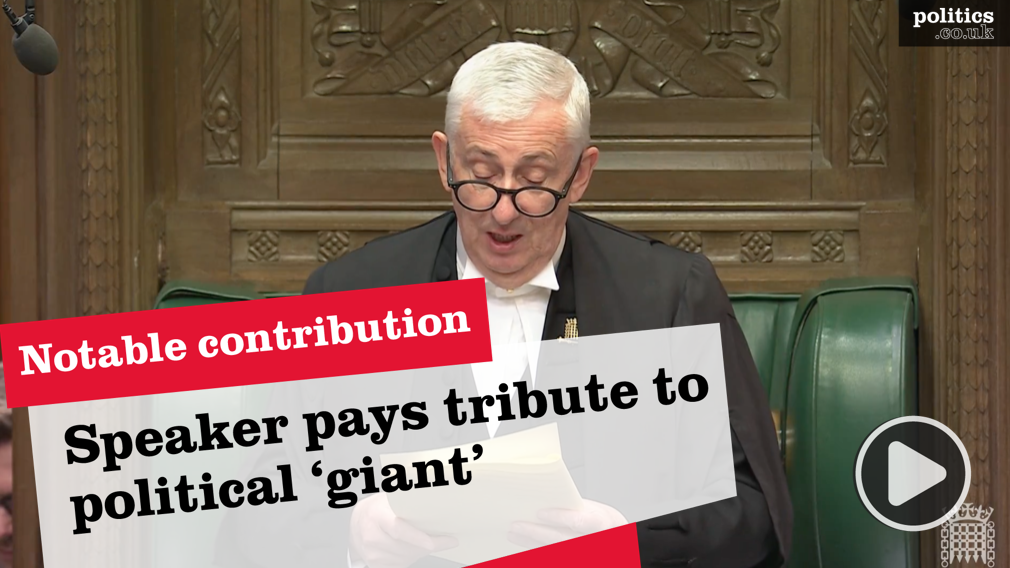These are tantalising times for Liz Truss. Earlier this month, she stole the show at Conservative Party conference with her packed-out fringe event; Nigel Farage, Priti Patel and Jacob Rees-Mogg were among the adoring attendees as the former PM triumphantly insisted that the core tenets of the Trussite creed are, in spite of it all, correct.
“What we need to acknowledge is government is too big, taxes are too high and we are spending too much”, Truss argued as she laid out her case for growth. In terms of both bums on seats and column inches, she vastly outcompeted chancellor Jeremy Hunt, who took to the conference’s main stage at around the same time.
But Truss was not only a hot topic at Conservative Party conference. A week later in Liverpool, the former PM’s mere mention provided an easy laugh line for Labour’s mainstage speakers. Recounting Rishi Sunak’s recent travails, Keir Starmer was only five lines into his speech before he declared: “I’m beginning to see why Liz Truss won. Although I still think we’d be better off with that lettuce”.
What is clear: over a year after the disastrous mini-budget, Trussonomics has yet to find its way into the dustbin of history. Both its lead advocate and namesake, Truss, as well as its most prominent opponents, the Labour frontbench, are battling to keep it centre stage. Rishi Sunak plays his usual role as spectator, still refusing to directly rebuke his predecessor.


And with news that the former PM plans to publish an “alternative budget” a week before Jeremy Hunt unveils his Autumn Statement in November, Truss has now secured her place in the narrative of this year’s crucial last fiscal statement.
This “alternative budget”, already the subject of much mockery, will flow from the pens of the conclave of liberal economists collected within the Truss-patronised “Growth Commission”. Nominally, the former PM is the “convenor” of the commission and, when it launched in July, Truss sat in the audience debuting her impression of an elder statesperson. As I noted at the time, this was “Trussonomics retreating to its intellectual homestead: the realm of secretive policy institutes and think tanks”.
Truss herself told reporters after the launch: “It’s a long game”. Now we know how Truss intends to play it.
At the time, the ostensible thinking behind the Growth Commission was that it would act as a kind of shadow to “orthodox” institutions, curating economic models based on fundamentally antagonistic ideological assumptions: an office of budget irresponsibility, if you will.
But with the upcoming “alternative budget”, Truss’ grouping appears to be stepping outwith the bounds of this initial, deliberately wonkish, brief. Rather, it is now expected to propose policy on a range of areas, including on corporation tax, income tax and national insurance. Other things on the agenda are public sector spending, productivity as well as regulatory reforms.
I gave some credit to Truss at the time of the Commission’s launch: it thought the new group was doing something more interesting than Liz Truss revival project, as other commentators had suggested. But buoyed by her welcome at the Conservative Party conference, it appears Truss is in fact edging into overtly political territory.
While the mere mention of a Truss-helmed “alternative budget” will send a shiver down the collective spine of Britain’s financier class, we should now view it for what it is: a new phalanx being pushed into the battle for political and intellectual supremacy in the Conservative Party.
This, of course, means more bad news for Rishi Sunak. He is already facing an amassing Trussite rebellion, with more than 33 MPs in September having signed their name to a pledge not to vote for any more tax rises. And the former PM announced at her conference “growth rally” that the conclave of Trussite parliamentarians, labelled the Conservative Growth Group, has swelled to 60 since it was set up in January. In theory, the caucus has the potential to inflict actual parliamentary damage on the prime minister if they choose to vote against him en masse.
Truss’ “alternative budget” gambit will now further expose Conservative splits. There is no hiding the difference of opinion between Truss and her successor as prime minister; in fact, their gulf in positioning is arguably made worse by the fact that Sunak refuses to lean into the debate and repudiate Trussonomics unambiguously. As with the vote on the partygate report into Boris Johnson, Sunak fears that provoking one of his predecessors will have dire party management implications.
But, moreover, Sunak probably calculates that engaging in a debate with Truss will proffer her vision some undue credibility. Sunak will, therefore, likely refuse to legitimise Truss’ Growth Commission by responding to its budget recommendations. But this means, in lieu of any ministerial repudiation, Truss loyalists will soak up the crucial pre-autumn statement oxygen.
And it is great news for Labour, whose spokespersons are ever keen to leverage Truss’ fiscal loosening as part of their platform of economic credibility. Indeed, the throughline of everything the Labour Party has uttered since Kwasi Kwarteng delivered his doomed fiscal update in September last year is that Labour is now the party of sound economics.
Revelling in the Truss-induced factional fanfare over the past few months, Labour has called on Sunak to block the former PM’s resignation honour list; posted a social media graphic of Sunak in Truss’ pocket (Miliband- and Salmond-style) with the caption, “We know who’s really in charge”; claimed Truss is still leading the Conservative Party” at Labour conference via Rachel Reeves’ address; pledged to give the Office for Budget Responsibility greater powers if it wins the next general election to avoid another “disastrous” Truss-style implosion; and briefed out analysis about a “Tory mortgage penalty” flowing from the mini-budget.
Crucially, the Mid Bedfordshire constituency, which heads to the polls for a key by-election on Thursday, has the highest number of households with a mortgage in England and Wales (at 39.8 per cent), according to the House of Commons library. (Note, this is according to the new constituency boundaries; the new Mid Beds maintains 80.7 per cent of the old constituency, with 0.1 per cent of Bedford appended). Still, in light of this, it is little surprise Labour is amping up its attacks on the “Tory mortgage penalty”.
Thus, Truss’ alternative budget will be a moment of fresh danger for Rishi Sunak, and fresh opportunity for Keir Starmer and the Labour Party. The former PM has underscored her position as Labour’s not-so-secret weapon.
Josh Self is Editor of Politics.co.uk, follow him on Twitter here.
Politics.co.uk is the UK’s leading digital-only political website, providing comprehensive coverage of UK politics. Subscribe to our daily newsletter here.












